Deadly M5.9 earthquake hits Tanzania, one of country’s strongest ever
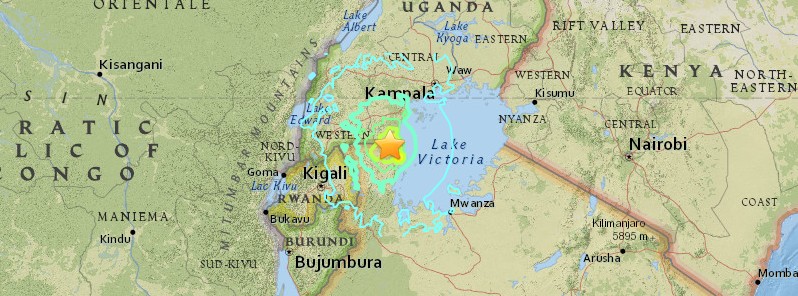
A strong and shallow earthquake registered by the USGS as Mww5.9 hit near Lake Victoria, Tanzania, Africa at 12:27 UTC on September 10, 2016. The agency is reporting a depth of 40 km (24.8 miles). The quake caused serious damage to property, killed at least 15 people and injured more than 200.
According to the USGS, the epicenter was located 22.3 km (13.9 miles) NE of Nsunga (population 20 049), 29.1 km (18.1 miles) NNE of Kyaka (population 13 810), 41.4 km (25.7 miles) N of Katoro (population 11 926), 42.6 km (27.1 miles) NW of Bukoba (population 70 628), and 45.2 km (28.1 miles) NNW of Katerero (population 18 430), Tanzania.
There are about 3 494 786 people living within 100 km (62 miles).
An expert from the Geological Survey of Tanzania, Mr. Gabriel Mbogoni, said it was one of the most intensive earthquakes ever experienced in the country.
The quake was felt as far away as western Kenya and parts of Uganda, which share the waters of Lake Victoria. Tremors were also felt in Kigali, Rwanda.
Most of the casualties were in the town of Bukoba who lived in brick structures.
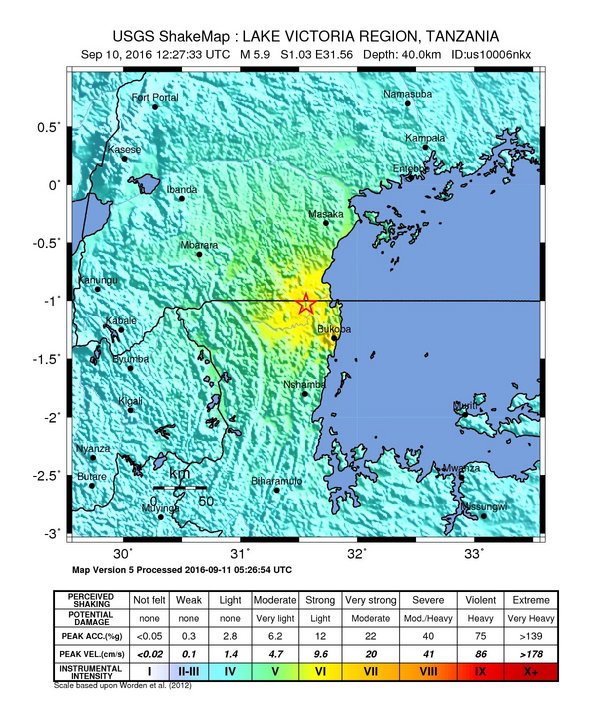 USGS issued a green alert for shaking-related fatalities and economic losses.
USGS issued a green alert for shaking-related fatalities and economic losses.
Overall, the population in this region resides in structures that are vulnerable to earthquake shaking, though some resistant structures exist.
Recent earthquakes in this area have caused secondary hazards such as landslides that might have contributed to losses.
Estimated population exposure to earthquake shaking
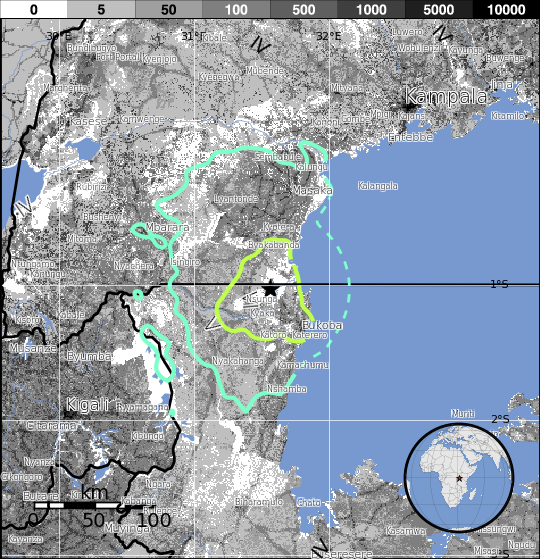
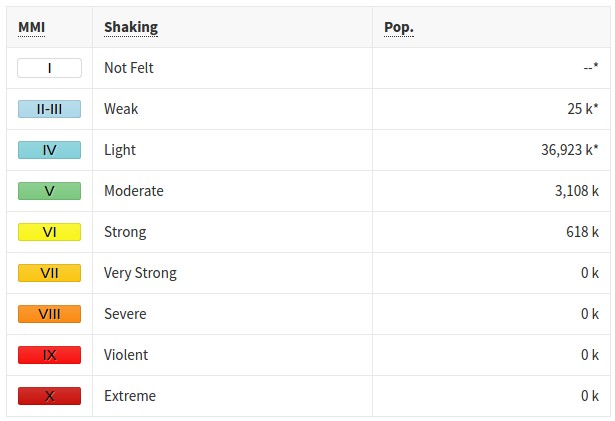
Selected cities exposed
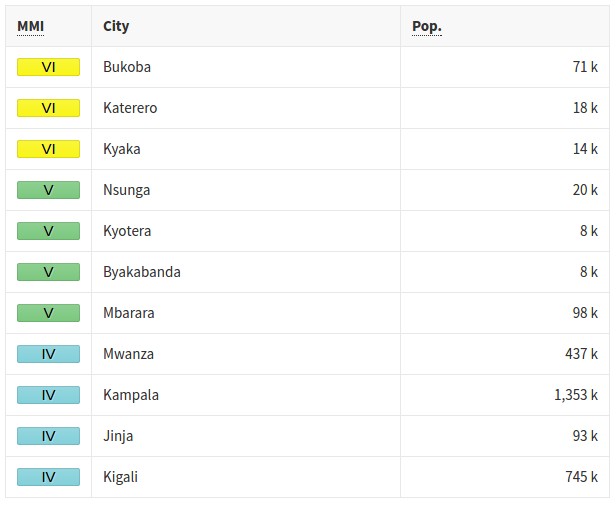
DETAILED: An #earthquake measuring 5.7 hits northwest Tanzania
– Images, video > https://t.co/IaDQoAU5ys#bukoba pic.twitter.com/B7BiHVHRaO— Jamii Forums (@JamiiForums) September 10, 2016
#Tanzania #bukoba #mwanza #earthquake pic.twitter.com/hhn5gltYyQ
— Task Force (@WaljiAli) September 10, 2016
Earthquake in #Bukoba. May be also Kagera and other regions #Tanzania #earthquake pic.twitter.com/TbeEUo76mX
— Jambo Bukoba e. V. (@jambobukoba) September 10, 2016
Historical earthquakes have been recorded in the region within 150 km (93 miles) of the epicenter, however, only a few damaging events have occurred in the last 117 years according to CATDAT. In March 1945, 5 people were killed in the Masabe earthquake, just north of where this one occurred. Similarly, in 1947 and on May 4, 1960 shocks have caused damage in the area. June 30, 1952 (M6) and 1994 (M4.5) had shocks closer to Bukoba. The catalogs show that there has been very few earthquakes in this region in general (within 100 km / 62 miles), with other parts of Tanzania, Uganda, Rwanda, and Burundi usually affected by earthquakes.

Video courtesy CNN
Featured image credit: USGS

Commenting rules and guidelines
We value the thoughts and opinions of our readers and welcome healthy discussions on our website. In order to maintain a respectful and positive community, we ask that all commenters follow these rules.